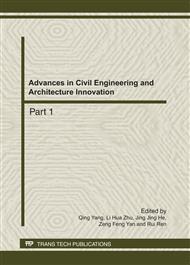p.3459
p.3465
p.3469
p.3473
p.3477
p.3481
p.3486
p.3490
p.3495
Seeking Ourtopia through Mega Event: Succession and Innovation from Expo 2010 Shanghai Industrial Heritage
Abstract:
Every Expo has constantly played a significant role in the exploration of us. Exploration here indicates a realizable dream rather than a pure Utopia. To describe this definition exactly, a new word “Ourtopia” is created, blending “Our” into “Topos” from ancient Greek, describing an attainable one through the transformation of the ideal into the real with a plurality of thought and action. Under this unique context, Shanghai Expo provides an opportunity to achieve Ourtopia from choosing of Expo sites, rebuilding of UBPA, reconstruction of industrial heritage itself. Through Shanghai Expo, industrial heritage succession is defined as a period of balancing different values, especially culture and economic. And, industrial heritage innovation between Pre-and-Post Expo must be based on analyzing these three comparisons---event-based VS. necessity, temporary VS. permanent, super-scale VS. comfortable-scale. Accordingly, other cities study from Shanghai Expo sample in terms of three perspectives--- Mega event VS. non-mega event, short periods VS. long-term impact, nationality VS. locality, thereby exploring industrial heritage potential value.
Info:
Periodical:
Pages:
3477-3480
Citation:
Online since:
October 2011
Authors:
Price:
Сopyright:
© 2012 Trans Tech Publications Ltd. All Rights Reserved
Share:
Citation:


